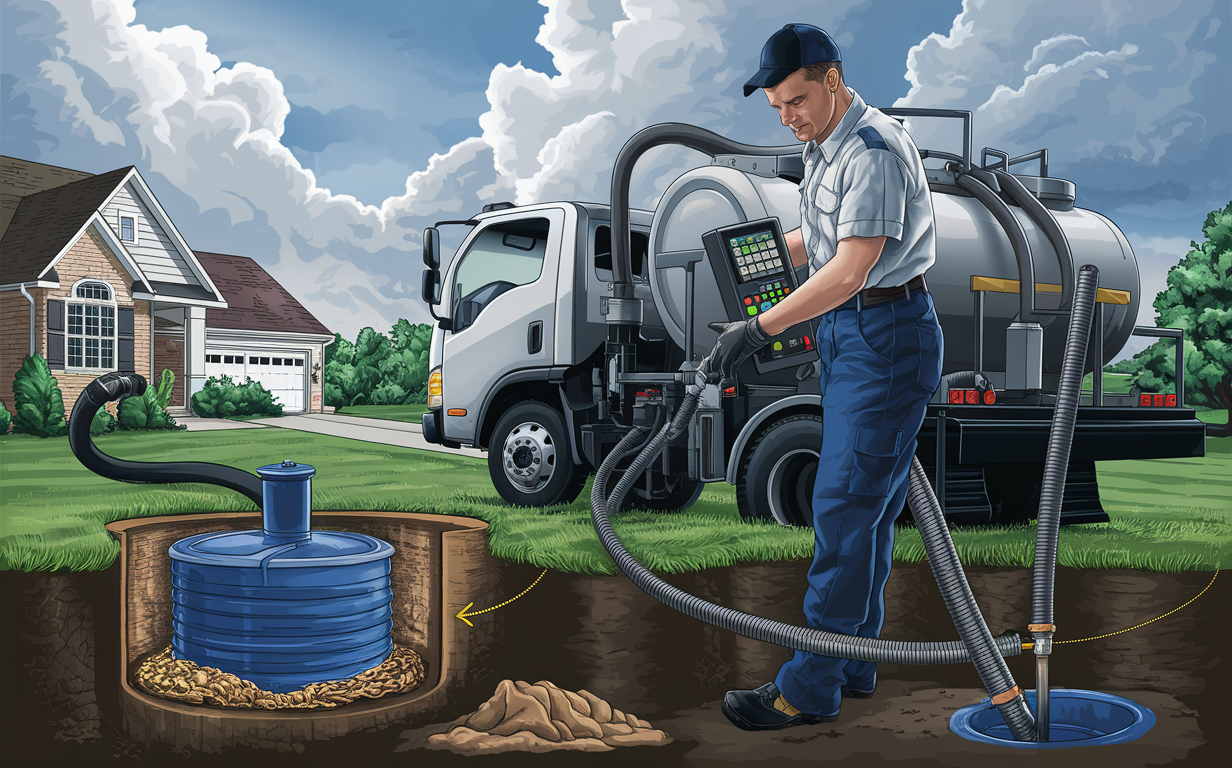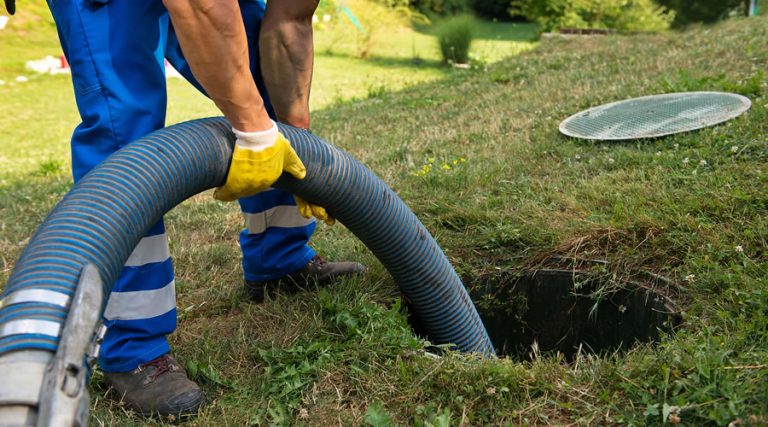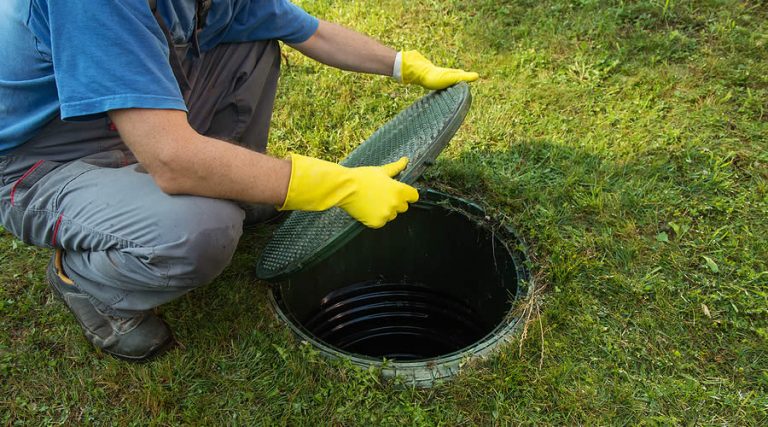Residential Septic Tank Pumping: Essential Maintenance
Residential septic tank pumping is an essential part of maintaining a healthy and efficient septic system. This process involves removing the accumulated sludge and scum from the tank, preventing clogs and backups.
In this article, we’ll share our firsthand experiences and insights into the importance of regular septic tank pumping, based on our years of experience in the wastewater industry.
Regular residential septic tank pumping ensures the efficient operation of your system, prevents costly repairs, and protects the environment.
Table of Contents
The Importance of Residential Septic Tank Pumping
Understanding Your Septic System Septic systems are essential for rural and suburban homes that aren’t connected to a municipal sewer system. They treat and dispose of household wastewater, keeping our communities clean and healthy.
Signs You Need Septic Tank Pumping
Common signs that your septic tank needs pumping include:
- Slow drains: If water is draining slowly from sinks, tubs, or toilets, it could be a sign that your septic tank is full and needs to be pumped.
- Gurgling sounds from pipes: When your septic tank is full, the wastewater has nowhere to go, causing gurgling noises in your pipes.
- Sewage smell in your yard: A strong sewage odor around your septic tank or drain field could indicate that the tank is overflowing and needs to be pumped.
- Lush green grass over the drain field: An overly green patch of grass over the drain field may signify that the septic tank is leaking wastewater, which acts as a fertilizer.
- Backed-up drains or toilets: If your drains or toilets are backing up, it could be a sign that your septic tank is full and needs to be pumped.
It’s generally recommended to have your residential septic tank pumping be inspected and pumped every 3-5 years, depending on the size of your household and usage. Regular maintenance can help prevent costly repairs and ensure your septic system is functioning properly.
The Septic Tank Pumping Process

Preparing for the Pumping Process – Before the residential septic tank pumping process begins, it’s important to locate the septic tank and ensure the area is accessible.
The Pumping Process
Our team utilizes a powerful vacuum truck equipped with specialized pumps and hoses to efficiently remove the wastewater, sludge, and scum from your septic tank or sewage system. This process involves carefully extracting the accumulated waste materials, ensuring a thorough cleaning of the tank’s interior.
The duration of the service typically ranges from a few hours to half a day, depending on the size of the tank and the amount of waste present. Our experienced technicians follow strict safety protocols and employ industry-standard techniques to ensure a seamless and environmentally responsible operation.
- We use a high-capacity vacuum truck with powerful suction capabilities to remove all types of waste materials, including liquid wastewater, solid sludge, and floating scum.
- Our team adheres to strict safety guidelines and follows industry best practices throughout the entire process.
- The duration of the service can vary based on factors such as:
- The size of the septic tank or sewage system
- The amount of accumulated waste materials
- The accessibility and location of the tank
- After the waste is removed, we can perform a thorough inspection of the tank’s interior to identify any potential issues or necessary repairs.
- Upon completion, we ensure the proper disposal of the extracted waste materials in accordance with environmental regulations and best practices.
Benefits of Regular Residential Septic Tank Pumping

Preventing Costly Repairs – Regular residential septic tank pumping can help prevent costly repairs by keeping the system running efficiently and preventing clogs and backups.
Protecting the Environment – Septic systems can pose a risk to the environment if not maintained properly. Regular residential septic tank pumping helps ensure the system is functioning correctly and reducing the risk of contamination.
Additional Benefits of Regular Septic Tank Pumping
- Extends the lifespan of your septic system: Regular pumping can help prevent excessive buildup of solids and scum, which can extend the lifespan of your septic system. According to the National Small Flows Clearinghouse (NSF), septic systems that are pumped regularly last 25-30 years, while those that are not pumped fail after 15-20 years (EPA).
- Minimizes the risk of sewage backups and overflows: Septic systems that are not pumped regularly can lead to sewage backups and overflows, which can be hazardous and costly to clean up. The NSF reports that 1 in 15 homes with septic systems will experience a major failure within a 10-year period (EPA).
- Helps maintain the proper balance of bacteria: Septic systems rely on bacteria to break down waste effectively. Regular pumping helps maintain the proper balance of bacteria in the septic tank, ensuring efficient wastewater treatment. The NSF recommends maintaining a bacterial population of 1 billion bacteria per gram of sludge (EPA).
- Prevents damage to the drain field: A clogged or failing septic system can cause damage to the drain field, which can be expensive to repair or replace. The NSF reports that drain field repairs cost an average of $3,000 (EPA).
- Improves the overall efficiency of your septic system: Regular pumping helps maintain the overall efficiency of your septic system, reducing the risk of system failure and the need for premature replacement. The NSF reports that septic systems that are pumped regularly operate at 75% efficiency, while those that are not pumped operate at only 50% efficiency (EPA).
Signs of Septic System Failure
If you notice any of the following signs, it may indicate a failing septic system, and you should contact a professional immediately:
- Sewage odors around the septic tank or drain field
- Wet or soggy areas around the drain field
- Sewage backing up into the home
- Slow-draining sinks, tubs, or toilets
- Bright green, lush vegetation around the drain field (indicating nutrient-rich wastewater leakage)
Septic Tank Pumping Frequency Table
| Household Size | Tank Size (gallons) | Recommended Pumping Frequency |
|---|---|---|
| 1-2 people | 1,000 | Every 5-6 years |
| 3-4 people | 1,500 | Every 3-4 years |
| 5-6 people | 2,000 | Every 2-3 years |
| 7-8 people | 2,500 | Every 1-2 years |
Please note that these are general guidelines, and the actual pumping frequency may vary based on factors such as water usage, garbage disposal usage, and the age of the septic system.
Factors Affecting Septic Tank Pumping Frequency

- Septic Tank Size: The size of your septic tank affects how often it needs to be pumped. Larger tanks may only need pumping every 5-10 years, while smaller tanks may need more frequent pumping.
- Household Size and Water Usage: The number of people living in your home and their water usage habits can also impact how often you need to pump your septic tank.
Septic Tank Pumping Costs

The cost of septic tank pumping varies depending on factors such as tank size, location, and the amount of waste removed.
Additional Septic Tank Pumping Considerations
- The type of soil in your area can impact the frequency of pumping. Clay soils may require more frequent pumping due to slower drainage.
- The presence of a septic system inspection and maintenance program can help reduce the cost of pumping over time.
Regular residential septic tank pumping is an essential part of maintaining a healthy and efficient septic system. By understanding the importance of pumping, the process involved, and the benefits, homeowners can make informed decisions about their septic system maintenance and save money in the long run.
Contact Texway Wastewater Services today to schedule your residential septic tank pumping appointment and keep your system running smoothly!








 Texway Wastewater Services is a septic, wastewater, and excavation company based out of Burleson, Texas and serving the surrounding areas. We specialize in
Texway Wastewater Services is a septic, wastewater, and excavation company based out of Burleson, Texas and serving the surrounding areas. We specialize in